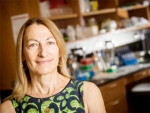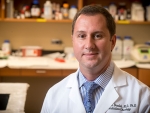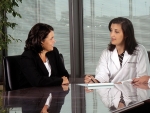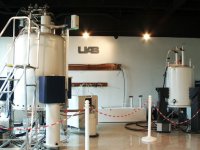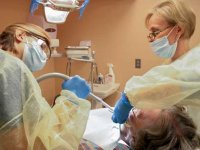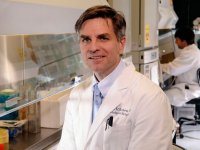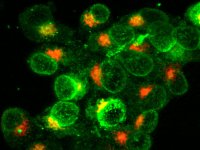Displaying items by tag: oneal comprehensive cancer center
Growing a garden helps cancer survivors eat better, but the benefits extend beyond the harvest, UAB study reveals.
Tagged under
UAB epidemiologist Christine Skibola used genomics to identify a DNA variant that makes some susceptible to leukemia.
Researchers identify the strategy that highly aggressive brain tumor cells use to fuel their relentless expansion and reveal a fresh target for cancer therapy.
Tagged under
With pilot finds from young professionals, Division of Preventive Medicine Assistant Professor Tiffany Carson, Ph.D., will build the foundation of her research program studying factors that influence cancer disparities of black and white women in the South.
The UAB Comprehensive Cancer Center has been selected as a lead academic site and received a prestigious NCI grant that will open up clinical trials across a nationwide network and expand treatment options for patients.
The UAB Comprehensive Cancer Center’s May 1 Fiesta Ball will support the work of UAB’s young cancer research scientists.
Tagged under
Leonard Sender, M.D., chairman of Stupid Cancer, the largest adolescent and young adult cancer survivor’s advocacy group in the United States, will be the featured keynote speaker.
Tagged under
The University of Alabama System Board of Trustees approve new endowments, promotions and programs during its Feb. 7 meeting.
Tagged under
- school of medicine
- school of health professions
- college of arts and sciences
- department of psychiatry and behavioral neurobiology
- department of pathology
- department of dermatology
- department of ophthalmology and visual sciences
- department of health services administration
- department of radiology
- collat school of business
- school of engineering
- department of accounting and finance
- school of education
- department of human studies
- center for exercise medicine
- department of microbiology
- department of medicine
- department of social work
- department of materials science and engineering
- school of optometry
- department of vision sciences
- department of neurology
- comprehensive center for healthy aging
- oneal comprehensive cancer center
A UAB study will pair master gardeners with breast cancer survivors in an effort to promote a healthy diet and physical exercise.
Tagged under
Tagged under
PNP Therapeutics, UAB and Southern Research Institute work abolishes otherwise unmanageable human cancers in preclinical rodent studies.
Tagged under
The Bartow Classic recognizes the late UAB Men’s Basketball Coach and Athletics Director Gene Bartow for his decades of commitment to UAB and intercollegiate sports.
Tagged under
Ballroom-dance intervention seeks to improve health, relationships for women with reproductive cancers and their partners – participants receive free dance lessons.
Tagged under
UAB faculty, students care for elderly in state’s only retirement community based full service dental clinic.
Tagged under
Tagged under
Tagged under
The fund will benefit cancer patients who are facing demonstrable financial hardship to help offset the cost of their treatment.
Tagged under
Biomarkers could tailor preventative or therapeutic aspirin regimens by predicting colorectal cancer patients’ response.
Tagged under
A Department of Neurosurgery, effective Oct. 1, 2013, will increase the profile of an internationally renowned program.
Tagged under
In this preliminary analysis, the study treatment neither built up in organs and nor destroyed the bone marrow’s ability to make blood cells.
Tagged under

